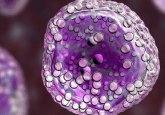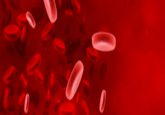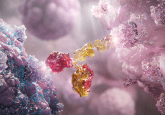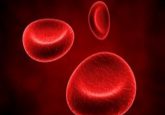Scientific and regulatory challenges in development of CAR-T therapy for solid tumors
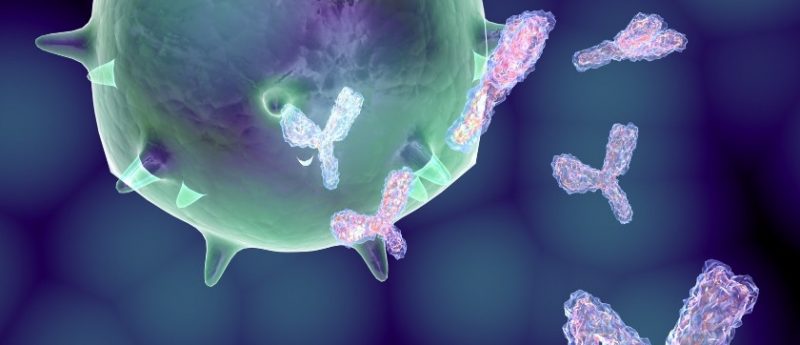
In this interview with Stephen Gottschalk from St. Jude Children’s Research Hospital (TN, USA) discover some of the challenges in developing CAR-T therapies for solid tumors, major milestones in their development and where the field is heading.
Could you give us a brief outline of the talk you recently presented at AACR 2018?
I presented at American Association for Cancer Research (AACR) Annual Meeting 2018 (April 14–18, IL, USA) in a session titled “Scientific and Regulatory Challenges in Development of CAR-T Therapy for Solid Tumors,” which was organized by Ke Liu from the US FDA. Carl June presented data from his clinical studies targeting mesothelin with CAR-T cells for pancreatic cancer, and Behnam Badie presented the results of clinical studies using IL13Ra2-specific CAR-T cells for high-grade glioma. Gary Archer focused on the evaluation of CAR-T cells in preclinical glioma models and I described the outcome of our clinical studies with HER2-CAR-T cells for sarcoma and high-grade glioma. At the end, Peter Boss reviewed the current status of CAR INDs and CAR protocols from an FDA perspective.
What are some of the challenges in developing CAR-T therapies for solid tumors?
Adoptive transfer of CAR-T cells for solid tumors has been safe, but these cells currently have limited anti-tumor activity in early phase clinical studies. This lack of efficacy is most likely multifactorial, including the: a) limited availability of targeted antigens and their heterogeneous expression, b) homing of T cells to tumor cells, and c) the immunosuppressive tumor microenvironment. In addition, the costs and regulatory requirements associated with clinical testing of CAR-T cells have the potential to impede progress.
What have been the greatest advances you have witnessed during your time in the field?
The year 2018 is the “silver jubilee” of the chimeric antigen receptor, which was originally published by Zelig Eshhar in 1993. He coined T cells expressing “T-bodies” to highlight that they combine the antigen recognition domain of an antibody with the effector function of a T cell. Since then, numerous groups of investigators have contributed to the development of the receptor, and have translated this technology into the clinic. A major milestone is of course the success of CD19-CAR-T cells for B cell malignancies, leading to their FDA approval. This has galvanized the field, drawing in investigators from many different areas of research, including basic, immunology, structural biology, cell signaling, synthetic biology, nanotechnology and bioengineering. Bringing these scientists into the cell therapy field will be critical in moving it forward. Lastly, the advent of gene editing, which allows for the first time to knock out genes and insert transgenes into defined loci has already started to revolutionize the cell therapy field. I believe that these technologies will drive the field forward; importantly, the clinical experience gained with gene-edited T cells will be instructive for gene-editing other cell populations for clinical use, including hematopoietic stem cells.
What would you like to see changed/developed in 10 years’ time?
The majority of current gene-engineering approaches rely on viral vectors to genetically modify T cells. This is rather complex, costly and requires additional testing of manufactured T-cell products. Robust non-viral DNA delivery systems, and/or gene-editing technology have the potential to address these limitations. Continued efforts to explore “off the shelf cell products” will also be critical so that these therapies can be seamlessly integrated into clinical practice. To advance the field there is also an urgent need to discover novel antigens that can be targeted with CAR-T cells, and to improve our ability to evaluate CAR-T-cell therapies in preclinical models. A key issue for clinical testing is how to efficiently evaluate CAR-T cells that, for example, target multiple antigens and/or have additional genetic modifications to enhance their function. We must be able to test these approaches in adaptive trial designs; doing it sequentially will be too costly and too time consuming. Lastly, being able to track CAR-T cells noninvasively and perform detailed studies on patients enrolled on CAR-T-cell therapy will be critical to advance the field.
Profile:
Stephen Gottschalk is a physician scientist who is interested in the immunotherapy of pediatric malignancies. He was a member of the Center for Cell and Gene Therapy Texas Children’s Cancer Center at Baylor College of Medicine (TX, USA) from 2001–2017. In 2017, he joined St. Jude Children’s Research Hospital as chair of the Department of Bone Marrow Transplantation and Cellular Therapy. He leads a translational research team conducting clinical studies with antigen-specific T cells for patients with hematological malignancies, brain and solid tumors. In the laboratory, his team are focused on improving T-cell therapy for cancer using genetic approaches.
